Best way to find Criminal Lawyer in Lucknow High Court
Criminal Lawyer
Whether you are accused for a crime against an individual (like assault or murder), a crime against property (like shoplifting or burglary), or some other criminal offense, a criminal legal counselor can help. Use atlaw chamber to consult a top of the line criminal lawyer in Lucknow to defend your rights at each stage of your case - from filing an anticipatory bail to a normal bail to an appeal after conviction or to quash an FIR.
They also known as criminal defense lawyer. Criminal lawyer in Lucknow high court work to defend people and organizations that have been charged with any crime. Criminal defense lawyers act as the legal representatives of their clients in court who are accused of crime. Criminal lawyer in Lucknow work on the behalf of criminal defendants to achieve the best outcome for a defendant’s case.
Criminal Law is a law that is related to crime. Advocates who practice criminal called criminal lawyer or criminal defense lawyer.
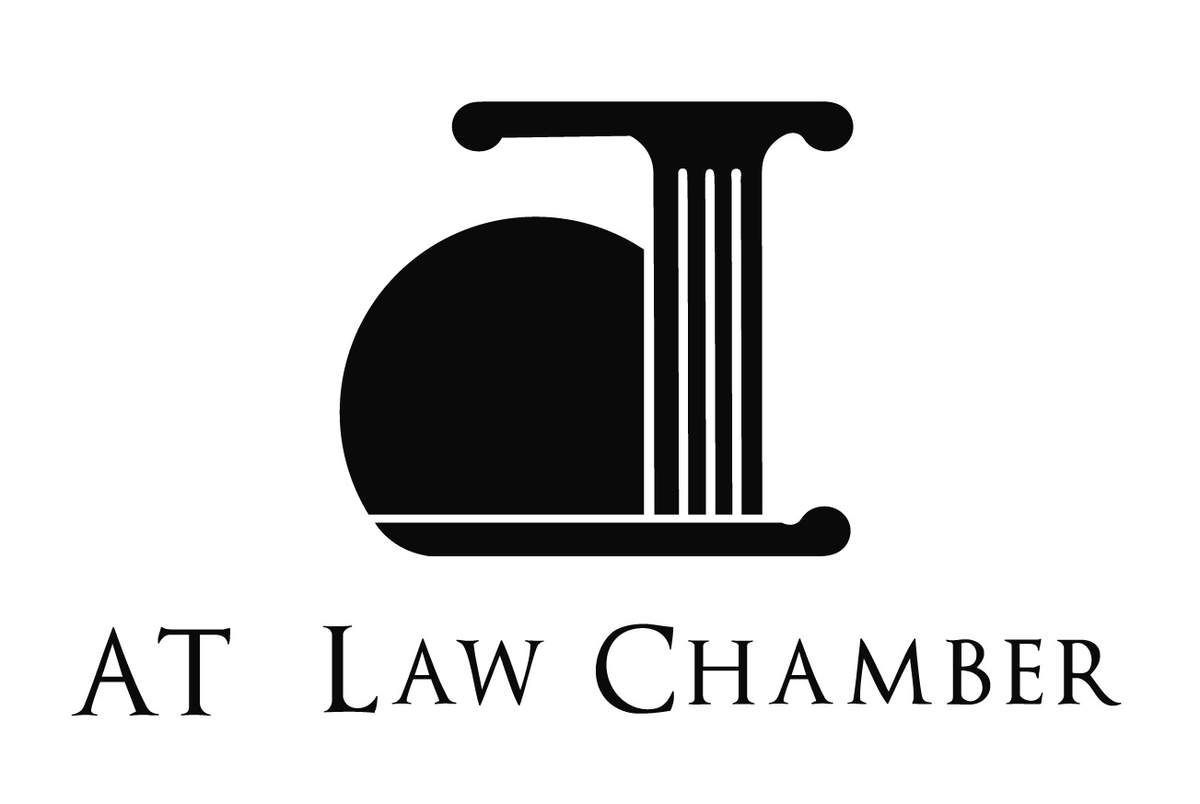
Specialization of Criminal law
- Criminology
- Domestic violence
- Sexual abuse
- Cyber crime
- Human rights
- Criminal trial
- Criminal appeal
- Crime against women
- Murder, robbery and theft
- Kidnapping
- Anti terrorist matter
- Criminal Revision
Types of Criminal Lawyer
There are different profiles available for criminal defence lawyer. You can pick any option based on your interest.
- Government Advocate
- Government Pleader
- Public Prosecutor
- Criminal law practitioner
- Lecturer
Qualities of a good criminal lawyer
- Good Communication Skills
- Extraordinary skills and knowledge
- Unshakeable Confidence
- Aggressiveness
- Personal Involvement
- Integrity
- Analytical skills
- Interpersonal skills
- Perseverance
- Proper judgment
- Quality of leadership
Duties and Responsibility of Criminal Defence Lawyer
Criminal lawyers have very big responsibility because they present people who are facing criminal charges. Duties and Responsibility of criminal lawyers are-
- Criminal lawyers investigate the cases and interview the witnesses
- They also deal with narcotic cases
- They develop a case strategy to strong their case
- Drafting of bail bonds and anticipatory bail application
- Research on case law related to the case that they are handling
Book appointment and consultation with top lawyers of Lucknow high court who handle cases related to civil matters, criminal matter and other litigation. If you are from Lucknow or in the neighborhood of Lucknow, and you are facing any problem related to criminal law you can find the best criminal lawyer in Lucknow high court with the help of At Law Chamber.

Work of Family Court Lawyers in Lucknow
About Family Court Lawyers
Family Law is perhaps the most emotional zone of law that delivers issues identifying with complex family or domestic connections. Family legal counselors are associated with the personal parts of their customers' lives which may incorporate separation, kid guardianship, alimony, abused relationship, family segments, etc. A family legal advisor is relied upon to help a customer settle any issue identifying with his/her family., family legal advisors go about as mediators between family members when contradictions create. Family Court Lawyers in Lucknow can likewise speak to customers in family dispute that end up in courts.
They are approached to draft pre-marital arrangements before union with ensure somebody's monetary advantages, instruct on the grounds regarding divorce and draft detachment arrangements. Family court lawyers have the skills and knowledge to represent your case in court they can support you in legal cases because they are qualified in this field. They have wide knowledge and expertise in the field of family law.
There area of expertise is as following
- Divorce and Financial separation
- Child custody, Adoption, Surrogacy, child abuse
- Domestic abuse
- Name changes
- Guardianship
- Emancipation and Approval of underage marriages
Why do you need a family court lawyer
- A family lawyer can help you to secure your rights in family property.
- They can help in partition of family estate between quarrelling families.
- They can protect you if you are victim of domestic Violence or domestic abuse.
- They can help you to get the custody of your child after separation.
- Family court lawyer can assist you in drafting a prenuptial agreement.
- They can assist you in matrimonial matters such as maintenance dispute, Advice and documentation of the legal services on the subject of divorce, permanent alimony.
- Execution of will and probate through courts.
- Drafting and vetting of family settlements.
Jobs role for family lawyer
- Family law professor
- Family advocate
- Family law advisor
- Divorce lawyer
Pros and Cons of becoming a family Lawyer
Pros
- It is not difficult to find clients for family lawyer. Most Indian population needs family lawyer for domestic issue.
- There are many ways of career for family lawyer.
- They enjoy the satisfaction of being able to offer their services to the victim of domestic violence that includes children and old aged people.
Cons
- Job profiles of family court lawyers include a lot of stress.
- There is a lot of competition in the profession of family law.
- Most of the time, clients do not spent enough money on a family court lawyer.
Whether you are filing a divorce, want your child custody, maintenance or alimony, fighting 498a, fighting a dispute related to discord in the family, or victim of harassment by your children, choose a lawyer who is an expert in family law. Go through at law chamber to hire a top rated family court lawyer in Lucknow.
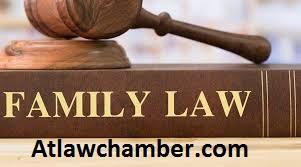
Best Advocates in Lucknow High Court
What is Lawyer
A person who is authorized to specialize in legal matters, and whose commitment it is to maintain the law while additionally securing their customer's privileges. A few obligations usually connected with a legal counselor include: giving legitimate guidance and counsel, exploring and assembling data or proof, drawing up authoritative reports identified with divorces, wills, agreements and land exchanges, and indicting or shielding in court. Best Advocates in Lucknow High Court advise and represent peoples, businesses body, and government agencies on legal issues and disputes. We can also called lawyers attorneys because they act as both advocates and advisor.
Duties of Lawyer
Duties of an advocate is as following-
- Advise and speak for customers in courts, before government organizations, and in private legitimate issues
- Speak with their customers, associates, judges, and others associated with the case
- Direct exploration and investigation of legitimate issues
- Decipher laws, decisions, and guidelines for people and organizations
- Present facts in written and verbally to their customers or others, and contend for their customers
- Plan and record authoritative reports, for example, claims, requests, wills, agreements, and deeds.
Types of Lawyers in India
- Private lawyers- They always work for private firms not for any government and non profit organizations.
- Public interest lawyers- They work for government and non- profit organizations. They also represent individuals who can not afford private lawyers.
- Trial lawyers- There working area is corporate law, medical malpractice, a civil or criminal trial.
- Immigration lawyer- They work in immigration processes, paperwork, visas, and deportation processes to help the individuals or companies.
- Estate lawyers- They make legal documents such as powers of attorney, trusts, wills, deeds and tax implications.
- Personal injury lawyers- personal injury alludes to both actual damages and mental damage. These legal advisors help the harmed people in recuperating the harms, guarding them in situations where they are sued for harms.
- Civil rights lawyers- These lawyers or attorney work for individuals to protect their civil rights.
- Criminal lawyers- They are two types of Criminal lawyer: prosecutors and defense attorneys. Defense attorneys represent individuals or groups of individuals who are accused of committing a crime while prosecutors represent the government or the state.
- Government lawyers- Every state or local government have their lawyers. They assist government with all legal work.
- Intellectual property lawyers- These lawyers handle cases related to IP, patents, trademarks, and copyrights.
- Tax lawyers- They handles cases related to tax. It is one of the attractive role for young lawyers.
- Digital media and internet lawyers- These type of lawyers handle the legal issues related to the website’s terms and conditions.
- Medical malpractice lawyer- These lawyers deal with the mistakes happened in the medical field from the side of a doctor, nurse, pharmacist etc.
A legal counselor can work in a law office, privately owned business, or even work for state as a public protector or for the prosecution.. Most lawyers work 50-80 hours out of each week, including end of the week. The recently recruited lawyers normally fill in as representatives responsible for exploring data and supporting in anticipation of upcoming trials. You can also find Family Court Lawyers in Lucknow using atlaw chamber.

Criminal Lawyer in Lucknow High Court
What is Criminal Lawyer
Criminal lawyers also known as criminal defense lawyer. They work to defend people and organizations that have been charged with crime. A criminal lawyer is a practitioner of law with the preferred practice of crimes and punishments. They represent the state and also defend the accused. Lawyers, which represent the state or the Government known as public prosecutors. Criminal lawyers act as the legal representatives of accused in court. They work on the behalf of criminal defendants to achieve the best outcome for a defendant’s case.
Criminal Law
It is clear from the name Criminal law, it is the law related to crime. The lawyers who practice criminal law called Criminal lawyer or criminal defense lawyer.
Specialization of Criminal law
- Criminology
- Domestic violence
- Sexual abuse
- Cyber crime
- Human rights
- Criminal trial
- Criminal appeal
- Crime against women
- Murder, robbery and theft
- Kidnapping
- Anti terrorist matter
- Criminal Revision
Types of Criminal Lawyer
There are different profiles available for criminal lawyer. One can pick any option based on their interest.
- Government Advocate
- Government Pleader
- Public Prosecutor
- Criminal law practitioner
- Lecturer
Responsibilities of Criminal Lawyer
- Investigation of case and interview the witness
- They make effective strategy to defend their clients in court
- They aim to resolve cases quickly and favorably as soon as possible
- Define law for clients and help them to understand their legal option.
- Represent clients in courts for hearings and court trials.
- In order to proceed in a positive direction, he must collect all the information related to the case that he is handling.
- Examine the crime scene.
- They file all the legal documents on behalf of the clients and states.
- They have to convince the jury about their clients.
Education required for the post of criminal lawyer
- They need to have a bachelor’s degree in law
- They need to have degree from law school
- They have to clear the bar exam before beginning practice.
If you are from Lucknow or in neighborhood of Lucknow, and you have any problem related to criminal law you can find the best criminal lawyer in Lucknow high court through At Law Chamber.

A Comparison of Hindu and Muslim Law
Many aspects of Indian family law are misunderstood. It is widely believed that the legislative reform of Hindu law in the 1950s made it secular and more conducive to gender equality, more so than the family laws of other groups, particularly Muslims.
Many claims that the secularization and homogenization of family law is the only route to greater gender equality. Want to know in detail, you can hire Best Advocates in Lucknow High Court to better understand.
After the Hindu law reforms of the 1950s, statutes governed more areas of Hindu law than Muslim law. But, religious texts and beliefs influenced these reforms, for instance, the introduction of divorce rights. In addition, these reforms weakened the rights of some women, for instance, the rights of widows to shares in their former husbands' property if they chose to remarry. They further weakened the divorce rights of some Hindu women, who previously could get divorces more easily based on the recognized customs of their castes, and the property rights of others that were governed by matrilineal inheritance laws earlier.
While legislation of the 1950s partly homogenized the major features of Hindu law, the Shariat Act of 1937 had the same effect earlier on Muslim law. It made "Muslim law" applicable to most areas of family life among Indian Muslims (while leaving the content of Muslim law unspecified), and in the process overrode the customs of some Muslim subgroups that had enjoyed legal recognition until then. Partial homogenization was affected in ways that increased the rights of Muslim women more often than it did the rights of Hindu women. This was true, for instance, of the inheritance rights of Muslim women. Daughters gained rights to half the shares that sons enjoyed in their parents' property, in contrast with previously having no rights to inherit parental property. Although no statutes specified these rights, they were recognized in Islam's founding texts as well as in later Islamic jurisprudence, and the Indian judiciary followed these prescriptions in adjudication.
Muslim law is far less codified than Hindu law. Only three short statutes pertain to Muslim law in India: two that outline the divorce and alimony rights of women, and the Shariat Act, which in effect leaves the content of Indian Muslim law to the judiciary's discretion. In contrast, four elaborate acts define the major features of Hindu law. Judges refer far more often to religious sources in adjudicating cases involving Muslims than those involving Hindus.
While Muslim law is less codified and more closely linked to religious sources than Hindu law, the rights of Muslim women are superior to those of Hindu women in some respects. This is true of a daughter's inheritance rights. Hindu daughters have the rights to share equally with sons in intestate succession to their parents' self-earned property, in contrast with Muslim daughters, who have rights to only half the shares that Muslim sons enjoy. However, the succession rights of Hindu daughters are restricted to intestate cases, that is, cases in which the parent did not leave a will. Hindu parents are free to will self-earned property as they wish, typically leaving all or most of such property to their sons, or perhaps other male kin. Male coparcenaries, moreover, control ancestral Hindu property in much of India, and daughters do not have any right to demand the partition of such property so that they may control their shares. (They gained this right since the mid-1980s only in five states.) This gives Hindu women little effective access to most forms of family property.
Muslim daughters have the right to half the shares left to sons in all forms of parental property. Muslim parents cannot deny their daughters rights to inherit shares in their property by the willing self-earned property to male kin alone, or by effectively presenting more of the property they own as being of ancestral origin. While many do so, their daughters can effectively challenge such disinheritance in the courts. Hindu daughters have no legal recourse under such circumstances in much of India. Click here for Family Court Lawyer in Lucknow to know all the family laws in Hindu and Muslims.

Divorce Law in India
Divorce is one of the most difficult phases of life that a married couple goes through. In India, since divorce is a personal matter, it is connected with religion. The Hindu Marriage Act,1955 governs the divorce for the Jains, Sikhs, Hindus, and Buddhists. You can click here to check Criminal Lawyer in Lucknow also for criminal cases in India.
The divorce laws of Muslims are governed by the Dissolution of Muslim Marriage Act,1939, the Parsis by Parsi Marriage and Divorce Act,1936, and Christians are governed by the Indian Divorce Act,1869. All inter-community marriages are governed by the Special Marriages Act,1954.
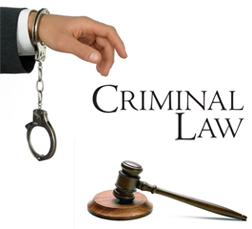
How to File a Divorce in India
In case a couple wants a divorce then they have to follow the following steps:
- The couple will have to hire a lawyer first so that he can provide them with all the details.
- A petition will be filed in the court by the lawyer.
- A copy of the petition will be then sent to the spouse.
- The spouse could either agree to divorce or contest against it.
- The completion of the procedure will depend on the circumstances of the case.
- In case of divorce by mutual consent, the parties have to prove that they were living separately for more than one year.
- A period of six months is given to the parties to reconsider their divorce.
- After the expiry of the period of six months, if the parties are still of the opinion that they want a divorce, then, the court can give the divorce decree.
What are the various documents required to file a petition for a contested divorce?
The documents required for the filing of a divorce petition for a contested divorce are:
- Address proof of husband.
- Address proof of wife.
- Marriage certificate.
- Four passport size photographs of both husband and wife.
- Evidence should be there which proves that both the husband and wife have been living separately.
- Evidence proving that the attempts were made to reconcile but were not successful.
- Income tax statements of the last two-three years.
- Details of the profession and present remuneration of the petitioner.
- Information regarding the family background of both parties.
- Details of the property owned by the petitioner.
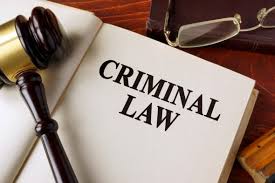
Criminal Lawyer in Lucknow
Lawyer’s fee one expects to pay for divorce cases in India
Generally, the charges for filing a divorce case is not too much, however, the Best Divorce Lawyer in Lucknow who engages to fight a divorce suit might charge for the services he has given. The lowest cost to fight a divorce suit is around ten thousand and the maximum might go is around ten lakhs.

Good Family Court Lawyer in Lucknow Have?
There are two broad schools of Muslim in India as follows: i. Sunni ii. Shia. The main point of differences between the two is that Sunni rules only count those relatives as heirs whose relation to the deceased person is through a male- son’s son and father’s mother. Click here to know more from Family Court Lawyer in Lucknow.
Shias include even those persons as heirs who are related to the deceased through a female e.g. daughter’s son, daughter’s daughter. A woman has certain rights to property in inheritance, maintenance, and Mahr. She is entitled to inherit property as a daughter, Widow, Grandmother, Mother, and Son’s daughter.
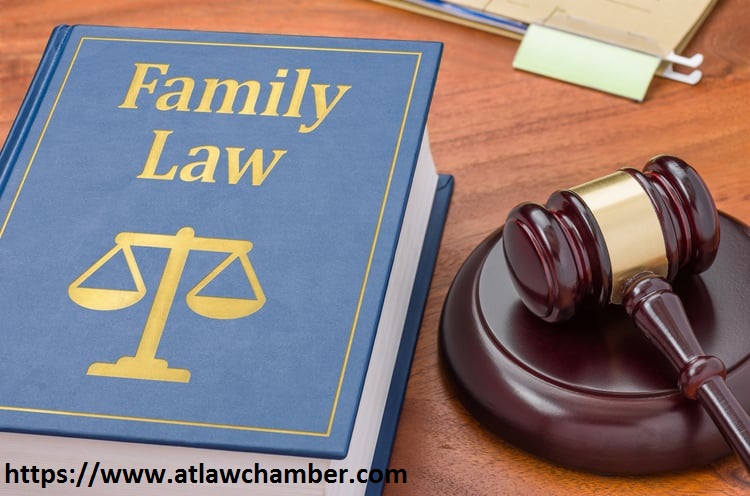
· Islamic Principles of succession were propounded by the Prophet:
- The husband and the wife, being equal, are entitled to inherit from each other.
- Some near females and cognates are also recognized and enumerated as heirs.
- The parents and certain other ascendants are made heirs even where there are descendants.
- The newly created heirs (those who were not entitled to inherit under customary law) are given specific shares. They are called sharer.
- The newly created heirs inherit the specified shares along with customary heirs, and not to their exclusion. The share of a daughter is half of Son’s share.
- Dower or Mahr:
- It is the sum of money or other property which the wife is entitled to get from the husband on marriage. It is an integral part of marriage.
- It can be fixed before or at the time of marriage.
- There are two kinds of Mahr i.e., Prompt and Deferred.
- Prompt Mahr is payable to the Wife Immediately on Marriage.
- Deferred mahr is to be given to the wife when the specific event happens or when her marriage has ended- either by the death of her husband or by divorce.
- A wife can even go to the Court if her Mahr is not paid by the husband. She can also refuse Conjugal Rights.
- If the wife is staying separately from her husband on account of the nonpayment of Prompt Mahr, he is bound to maintain her.
- In case of the husband’s death, the wife will get her Mahr out of her husband’s property. This is called the right of retention.
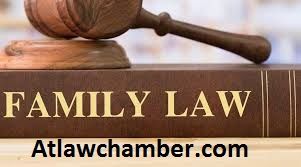
Family Court Lawyer in Lucknow
- Will or wasiyat:
A Muslim can bequeath 1/3rd of the total property but in case a woman has no blood relation and her husband would be the only heir, then she can bequest 1/2of the property
- Gift or Hiba:
- When one person gives certain property or thing or money to another who accepts it and the giver gets nothing in return is called Gift or Hiba.
- Any person who is major, a sound mind may make a gift. But the gift must be without any force or fraud. Click here to know more from Best Divorce Lawyer in Lucknow.
- Any person who is major, a sound mind may make a gift. But the gift must be without any force or fraud or coercion or under the influence
- For a valid gift, there shall be a declaration to make the gift, acceptance of a gift, and delivery of possession of the gifted property to done and delivery of possession of the gifted property to do.
- The mother cannot accept the gift on her minor child’s behalf but if there is no father, then by the legal guardian of the Child.
